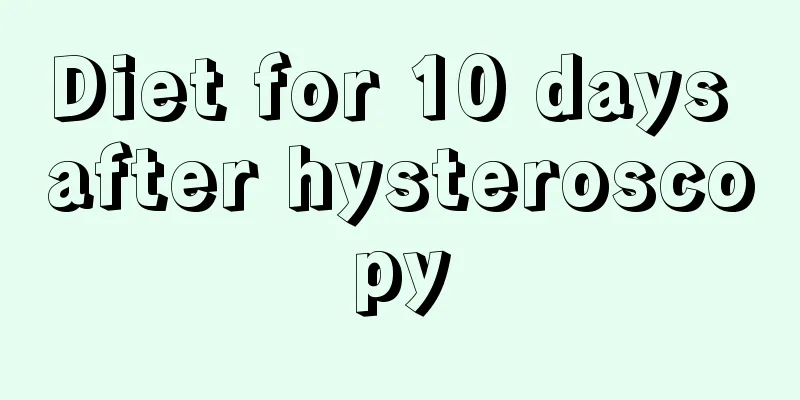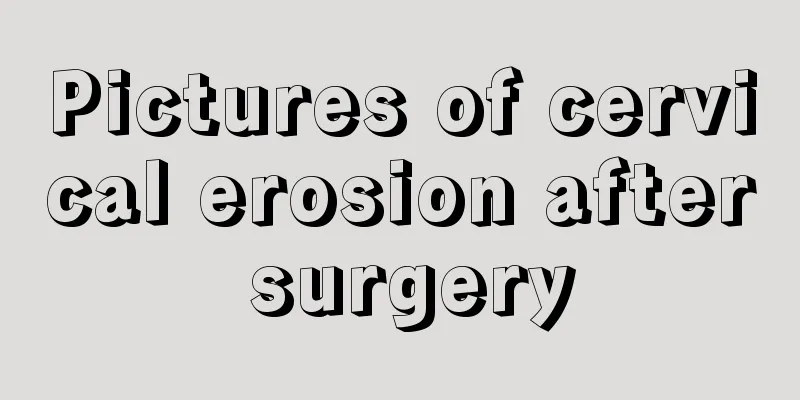What is the most effective method for treating pelvic inflammatory disease?

|
Under the current social conditions, the harm of some gynecological diseases is a headache for everyone, and among them, pelvic inflammatory disease is a disease with a relatively high incidence rate, which causes great harm to women's health. So how to treat pelvic inflammatory disease? Pelvic inflammatory disease can be divided into acute and chronic types according to the circumstances of the disease. Of course, for these two different situations, everyone should choose the treatment method that suits them. The main symptoms of pelvic inflammatory disease are lower abdominal pain of varying degrees. Mild cases cause lower abdominal discomfort, while severe cases are accompanied by pain and a feeling of heaviness in the lumbar region. The pain is often aggravated after fatigue, sexual intercourse, and before and during menstruation. The systemic symptoms of pelvic inflammatory disease are not obvious - the systemic symptoms of patients with chronic pelvic inflammatory disease are mostly not obvious, sometimes they may have low fever, fatigue, increased vaginal discharge, etc. Some patients may experience symptoms of neurasthenia again, such as lack of energy, general discomfort, insomnia, etc. When the patient's resistance is poor, acute attacks are likely to occur. Best treatment for pelvic inflammatory disease 1. General treatment of pelvic inflammatory disease: In most cases, general treatment methods can be used to relieve patients' mental concerns, enhance their confidence in treatment, increase nutrition, exercise, pay attention to the combination of work and rest, and improve the body's resistance. 2. Surgical treatment of pelvic inflammatory disease: Different situations require different methods. For patients with lumps such as hydrosalpinx or tubo-ovarian cysts or recurrent chronic salpingitis, surgical treatment can be performed. The principle of surgery is to completely cure the disease and avoid the chance of recurrence of residual lesions. The scope of surgery depends on the condition of the disease, and unilateral oophorectomy or hysterectomy plus bilateral oophorectomy is performed. For young women, ovarian function should be preserved as much as possible. 3. Physical therapy: Of course, this is the most suitable method in clinical practice. Choosing this method for treatment can promote local blood circulation in the pelvis, improve the nutritional status of tissues, and facilitate the absorption and disappearance of inflammation. Commonly used methods include shortwave, ultrashort wave, iontophoresis (various drugs such as streptomycin can be added), wax therapy, etc. You can also choose drug treatment. The treatment for acute attacks of chronic pelvic inflammatory disease is the same as that for acute pelvic inflammatory disease. While using anti-inflammatory drugs, α-chymotrypsin or hyaluronidase is also used, with 5 to 10 times as a course of treatment, to facilitate the absorption of adhesions and inflammation. |
<<: 10 Secrets to Eliminating Vaginal Itching
>>: Eight places where women are most afraid of cold
Recommend
Lower body pain in late pregnancy
Pregnancy is a very important period for female f...
What to do if you have severe uterine erosion?
Uterine erosion refers to cervical erosion, a dis...
Can I have an abortion if I have a fever?
Colds and fevers are very common diseases. Most p...
What causes itchy pubic hair?
The symptom of pubic hair itching occurs in many ...
Why is Henoch-Schonlein purpura more common in children?
1. What is Henoch-Schönlein purpura? Henoch-Schön...
Beware of "insect bite dermatitis" in summer
Some of the above pictures are from the Internet....
Why is there no fetal heartbeat at 7 weeks of pregnancy? I have a little pain in my stomach at 7 weeks of pregnancy. What's going on?
Generally speaking, if the pregnant mother does a...
What should children pay attention to in their diet if they have moyamoya disease?
What should children pay attention to in their di...
What are the effects of vasectomy on women's sex life?
Female sterilization is a relatively common perma...
Why does my mouth feel sour after pregnancy?
A woman's body will undergo many changes afte...
What are the benefits of drinking snake wine for women?
There are various types of wine. If you want to t...
What can women eat during confinement?
After giving birth to a baby for ten months, moth...
Brown discharge before menstruation
Nowadays girls call menstruation "aunt"...
Is it painful for women to check their urinary dynamics?
Urodynamic examination is a special test with a w...
Do I need to change the engine oil if I don't use my car for a long time? What should I do if the oil dipstick turns black after a long time of not using the car?
Since the Spring Festival, many people have been ...









